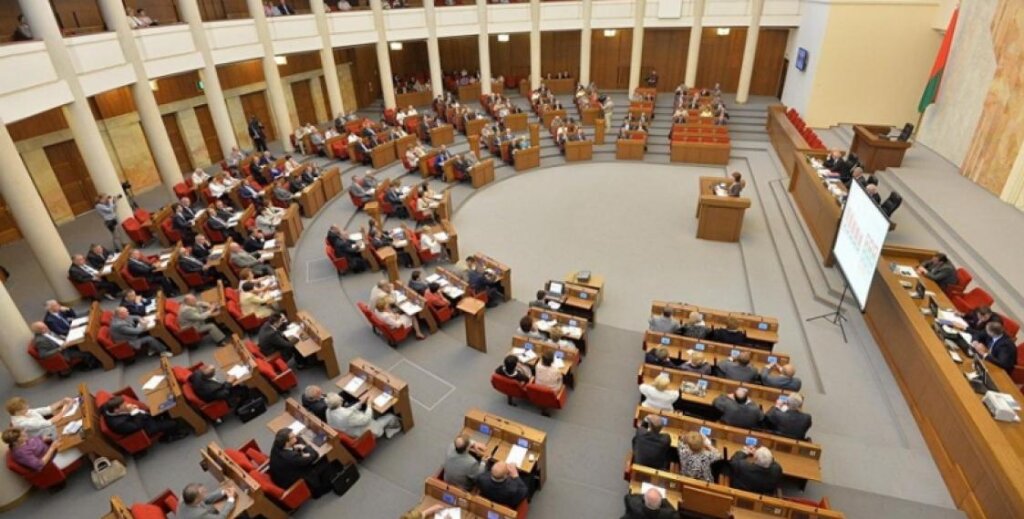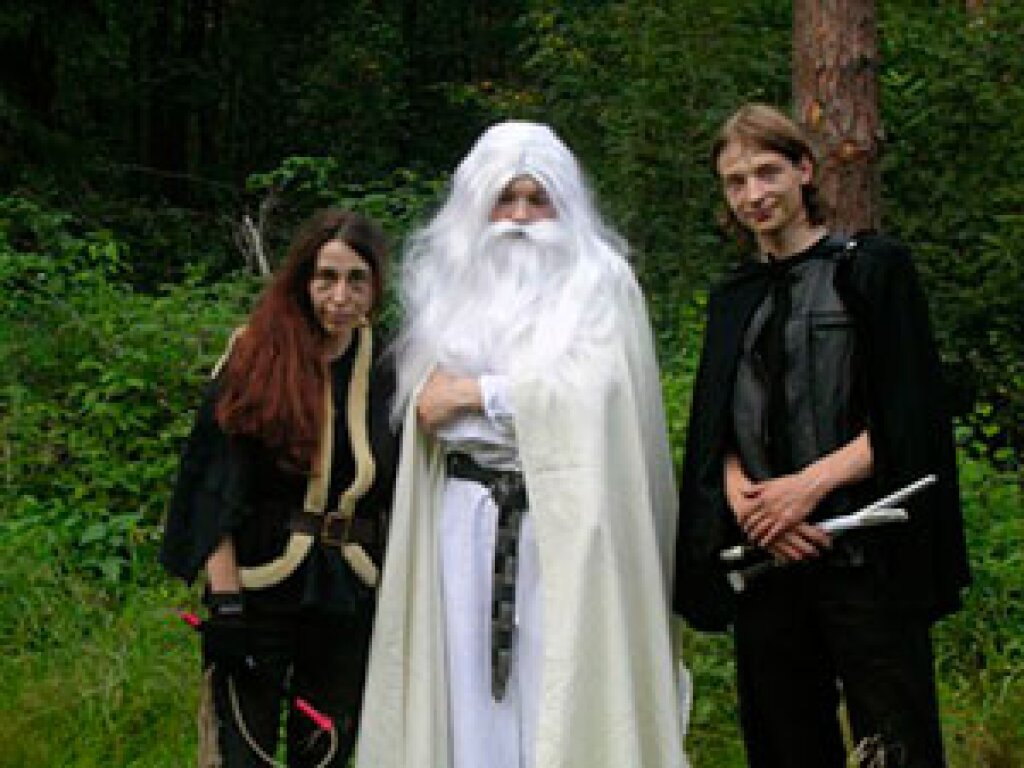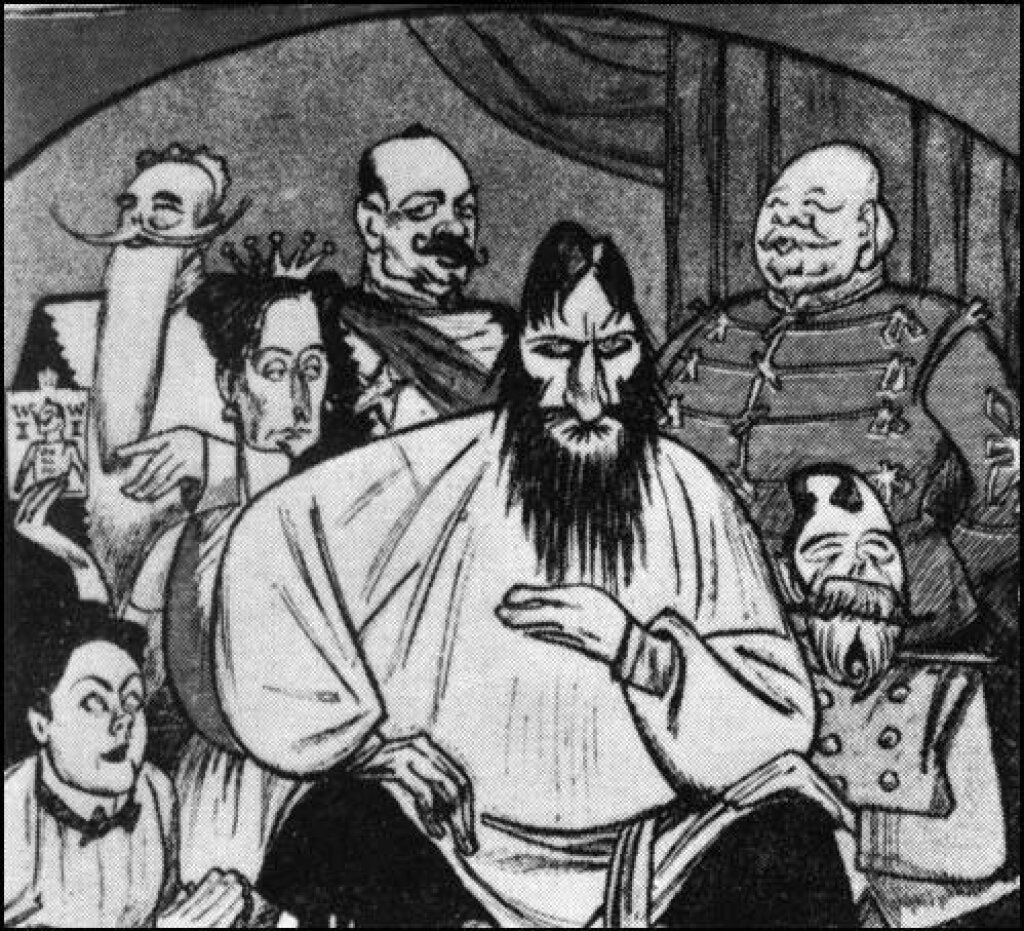This post features the first-prize entry in All the Russias' inaugural Graduate Student Essay Competition.
Julian G. Waller is a Ph.D Candidate in Political Science at George Washington University and a Bradley Foundation Fellow.
Belarus held parliamentary elections in November 2019, producing one of the most unsurprising electoral results in recent history, even by Belarusian standards. Out of 110 seats in its House of Representatives (Palata Pradstaŭnikoŭ), every single one was returned with a pro-government deputy. This was a change from previous elections in 2016, when as many as two candidates considered to be vaguely part of the scattered opposition managed to win. Conducted in an environment of heavy state control over media, political parties, business, and society, with administrative resources used to deny candidate registration, and with persistent rumors of fraud, this new election was hardly free or fair — par for the course for an hegemonic authoritarian regime like Belarus. Analysts looking for hope had to content themselves with marginal gains for (loyalist) youth in the new parliamentary cohort.
The victory of a full regime slate was pessimistically predicted by many observers of Belarusian politics. The hint of opposition success in the previous election had not translated into meaningful action, and the regime has expressed a complete lack of interest in actual political liberalization, even as it remains locked in geopolitically fraught relations with Russia over state integration and perpetually concerned with economic weakness. Writing for the Kennan Institute, George Sheppard noted that the very successfully stage-managed election was likely to prepare political ground for longtime President Alyaksandr Lukashenka’s next re-election in 2020.
One could alternatively apply Occam’s razor and suggest instead that this is simply Belarus returning to its usual practice of ensuring a fully dominated and compliant legislature — a veritable political tradition dating back to the 1990s. While some authoritarian elections produce surprisingly diverse parliamentary landscapes — and some even herald liberalization and democratization — Belarus has never been among that small club of modern dictatorships.
As social scientists and political observers, we tend to have a bias towards analyzing events when they produce unusual results or have outcomes that interact dynamically with other social and political processes and institutions. Assigning importance to a given subject of interest is a natural thing, and reassessing under-appreciated political institutions is a particular concern of many comparative political scientists. Scholarship on how authoritarian parliaments can ‘matter’ in different ways grows every year, including my own ongoing dissertation research. So, what do we do when the rubber-stamp really does seem to be a rubber-stamp?
Pointless Pining for Powerful Parliamentarism
Belarus has a structurally weak parliament, a function of a strongly presidentialist constitution written in 1994, and further denuded by the full, personalist authoritarian regime crafted by President Aliaksandr Lukashenka over more than two and a half decades. With prerogatives to submit legislation, unilaterally promulgate presidential decrees that have the strength of parliamentary legislation, dissolve the parliament and call elections essentially at will, choose the prime minister and a number of other political positions, and control the budget and all other spending matters, the president controls most available levers of power. While the parliament retains some traditional powers, including granting deputies legislative initiative, holding no-confidence votes, and considering presidential impeachment, these are essentially unused given the meticulously pro-government membership that the regime ensures is returned at each election.
This disempowerment extends even to the internal business of the parliament and the prerogatives of its deputies, meaning that even if the parliament had a larger share of opposition deputies — say the one-quarter(ish) that exists in Russia or the one-tenth in Kazakhstan — dissenting deputies have few procedural tools at their disposal. Belarus’ parliamentary standing procedure rules, the Regulation (Rehlament) are unkind to small groups of potentially oppositional or active parliamentarians. Control of the legislative agenda lies firmly with the parliament’s chairman, its standing committees, and its bureaucratic Secretariat, all of which are chosen by full majorities. Deputies have very limited speaking rights, meaning de facto filibusters or other obstructive delaying tactics are not available. The quorum threshold is too high to be blocked by strategic absenteeism. Powers to question the government (heaven forbid the President himself) are limited to written questions with narrow room for back-and-forth exchanges, undermining interpellation mechanisms that could otherwise act as a means to embarrass the government, make symbolic points, or effectively scrutinize the executive. And getting any speaking time is contingent on forming deputy groups whose minimum number is currently larger than any of even the pro-government parties sitting in the chamber.
These facts of constitutional position and procedural rule mean that the Belarusian parliament is not only thoroughly filled with regime loyalists, but that even were parliamentary opposition more successful, it would remain frustrated and largely impotent. Lacking the tools to adopt the unsexy but substantive role of a legislative opposition — executive scrutiny and symbolic argumentation and position-taking through debate — even elections exceeding Western observers’ wildest dreams would have trouble translating into real parliamentary action.
A Dead Parliament Waits Dreaming
Against the background of parliamentary disempowerment, it seems unlikely that any sea-change in Belarusian institutional politics would proceed through legislative channels. No small but persistent uptick in opposition fortunes will pave the way to real executive-legislative conflict. Barring a massive increase in opposition numbers, parliament cannot even present the minor threat of asking awkward questions or scrutinizing an unaccountable authoritarian executive. Instead, the parliament will continue to behave like the old acclamatory bodies of one-party states, representing in institutional form the hegemonic power of the regime and its domination of all state bodies.
On the other hand, Belarus’ parliament is well-positioned to evolve as the regime ages, bringing ever closer the day when Lukashenka transfers power to his as-yet-unnamed successor. The parliament's de jure subordinate status makes it less threatening should the regime decide to experiment with new ways of releasing pressure or allowing citizens to express discontent. Its internal, centralized majoritarianism means it will be better able to contain radical voices — whether pro-Western or pro-Russian — in any future crisis among the lower-tier elite. And given the historical durability of even thoroughly autocratic legislatures, its current life as a remarkably inactive body means that parliamentary precedent remains to be set.
Focusing on elections in such stably authoritarian regimes as Belarus is often an unrewarding exercise. Even putting aside analyses of full regime change, it is simply the case that there is a subset of electoral authoritarian regimes which are fully in command of the representative institutions existing within their borders, with no desire to shake them up. Yet we cannot forget that modern legislatures almost always possess powers that can be activated, repurposed, and stretched as regimes evolve and new opportunities present themselves. Parliamentary power in Belarus is one of the most limited, even among autocracies, so we should never be deluded into overstatement. But sleeping institutions have a habit of waking up quite suddenly, and Belarus’ has been slumbering now for some time.



